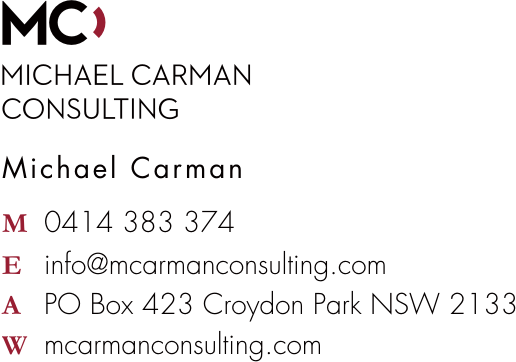Power, Alliances and Integration: Three Lessons in Strategic Management from the Ancient Romans
I’ve long been fascinated by those periods of history where cultural, artistic, scientific and political institutions bloomed, where there was a quickening in the spirit of human affairs: the Renaissance, Periclean Athens … and the ancient Romans.
I often wonder what brought about these flowerings of civilisation – what are the conditions under which human endeavours reach such expression? How do they come about? What precipitates such accelerations in human development?
My inquiries are ongoing. But as a related side-observation, when watching the BBC series Rome: Empire Without Limit narrated by historian and classicist Mary Beard I was struck by a number of facets of the growth of the Roman empire that presaged more recent learnings on change and strategic management.
Here are three take-aways from an empire which lasted more than a thousand years, many remnants of which are still firmly lodged in modern life.*
[* I was tempted to send this newsletter in July – a month named after Julius Caesar, or August, named after Augustus…]
1. Don’t Just Conquer – Incorporate
We tend to think of Rome as a mighty power conquering all in its path: a steadily expanding empire built solely on the strength of the Roman military. While there is truth to that, that is not the full story by any stretch. Military power on its own is not enough to build a long-lasting empire. What Rome did was not only conquer territories, they incorporated them. While there was plundering and pillaging as part of the conquest, the question was: what next?
The Romans had a very considered answer to this… and it’s one of the things that really marks Rome out from other powers. A once-hostile territory that had been subjugated gained some of the benefits of Roman citizenship, and would generally be allowed to maintain their own cultural and religious traditions. The only real requirement was that defeated territories had to provide soldiers for the Roman army. This gave Rome more boots on the ground, so adding to the ranks of the Roman army and giving it more wherewithal. The newly “recruited“ Roman soldiers were part of a large and mighty military force and so were now on the winning side and able to enjoy some of the loot.
In other words, what the Romans did was to give those who had been defeated a stake in Rome and her fortunes. Where once their interests had been directly at odds, the defeated cities and city states were now allied with Rome and able to enjoy some of the benefits of Roman life.
This worked both ways: Rome was also able to gain the benefits of its defeated enemies. Thus, all the rich cultural, artistic and scientific advances made by the Greeks were absorbed into the Roman sphere. As this cycle of incorporation continued, a virtuous circle of growth was fostered where Roman military might increased, the empire expanded, the range of cultural resources to draw on diversified, and information and trade spread throughout the empire, with all roads leading to Rome.
Implications for executives and managers
What does all this have to do with strategic management and change? Plenty: for one thing this is a lesson par excellence in strategy and change: the Romans made their adversaries stakeholders by giving them some skin in the game of Roman spoils and scientific, engineering and political advances and using them as the engine of growth. This is in contrast to keeping your enemies as enemies. With this ever-expanding spread of stakeholder involvement, the once small Roman city state turned, over successive generations, into a massive juggernaut.
Key questions
Who are your stakeholders? What stake do they have in your plans or goals – what’s in it for them? What can you draw from their involvement which adds to your own offering or future state? Are you able to generate a virtuous circle of benefits and contributions with your key stakeholders? And finally, are you able to turn your opponents and adversaries into sometime allies by incorporating them into your undertakings?
2. Favour Alliances Over Fortresses
The second point flows from the first: rather than remaining a self-subsistent state in its own right, Rome developed a series of alliances with the elites in the territories it conquered.
This reflects a nuanced exercise of power: instead of simply vanquishing territories, the Romans co-opted them. By entering into alliances with these local leaders, Rome extended its reach into the life of its newly conquered territories.
Another way of viewing this is to observe that Rome in effect became a network of connected city states and territories, as distinct from one city state itself. Local Governors were appointed to oversee defeated territories and were given enough flexibility and power to manage their domains while still, of course, respecting the authority and centrality of Rome.
Implications for executives and managers
Bunkering down and trying to secure a position holds less promise than extending your reach by developing alliances with those who have a stake in your undertaking (refer point number 1). Don’t try and do it all on your own; find those who can help you and extend your influence. Think through their interests (what’s in it for them) and work with that to further your own aims. Give trusted folk the right incentives and the authority to exercise their judgement.
Key questions
Who can extend your reach? With whom can you develop an alliance to further your aims? What are their objectives and will your undertaking further the accomplishment of their goals?
3. Exercise Authority Multi-Dimensionally
As we’ve seen, brute force and mere military might are not enough: it is this fact that really separates the Romans from other militaristically oriented societies. For example, the Spartans, for whom military considerations extended through the entire length of society, never accomplished anything like the Romans. Brute force really does have a limited shelf life and it is, as we’ve seen, simply not enough on its own to deal with the issue of how to handle conquered territories. Militarism is a sign of a civilisation in decline, not growth.
This is not to say that force is unimportant: the Romans did not achieve the growth they accomplished by being softly spoken social workers providing empathy to those around them. Military force was deployed and was integral to success, but the point is it was not the only tool at their disposal: it was coupled with the co-option of local elites and the building of support and loyalty among those on whom force had been exercised.
Implications for executives and managers
Keep a range of tools in your strategy and change management toolbox. You may have to deploy force, such as by terminating an employee, performance managing a team member, reviewing and restructuring a directorate, or reconstituting a steering committee or working group. But if you rely solely on these you will be less effective, have a narrower range of options, and lack the influence that comes with building loyalty amongst those who may be able to further your aims. Basically, you will have greater leverage if those around you are innately and intrinsically motivated to support your undertaking, rather than because they have been forced to by dint of fiat or position.
Key questions
What tools are in your strategy and change management tool kit? What are the instruments of both hard and soft power at your disposal, and how – and on whom – do you deploy them? Once you’ve taken over a unit or an organisation in an acquisition or a restructure, what then? Do you have a clear picture of how your organisation and the acquired entity will benefit from the restructure? And how the acquired entity’s leadership will behave once the restructure is finalised?
* * *
I hope this small foray into ancient history has given you some guidance in your management undertakings. It seems that by studying history we can not only avoid being condemned to repeat the mistakes of the past … we may also be able to glean some learnings about high performance from history’s most successful players.
I would be delighted to assist you with your strategy, change management and performance improvement efforts; contact me and let’s get started…
Warm regards,
Michael

References:
BBC (2016) Rome: Empire Without Limit [video file]
Arnold J. Toynbee (1987) A Study of History - Abridgment of Volumes I-VI by D.C.Somervell Oxford University Press.
© Michael Carman 2019
